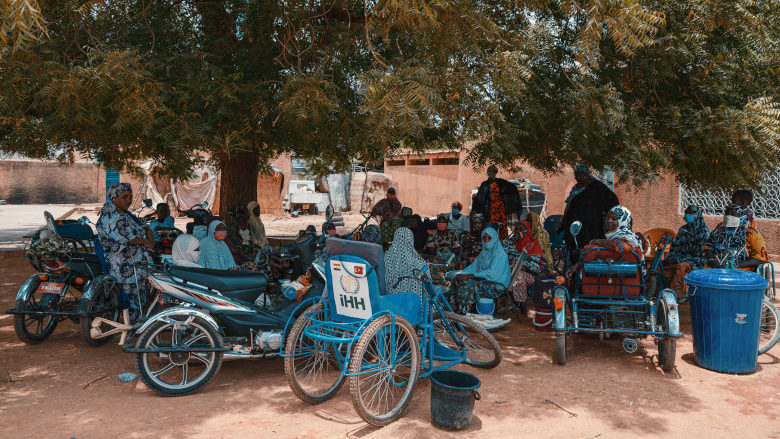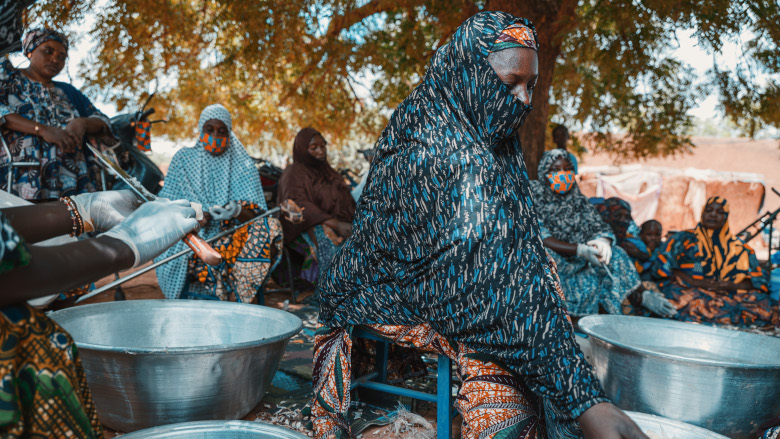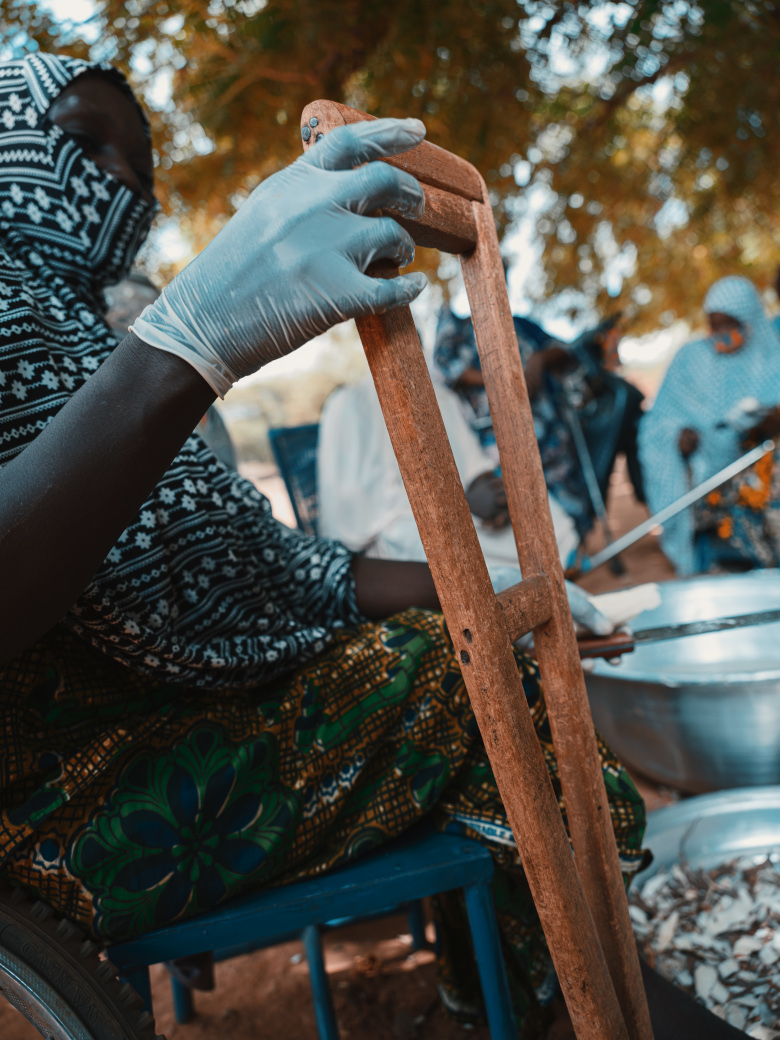NIAMEY, NIGER, October 2, 2020—With great emotion, Fati remembers the day she learned she could no longer join the members of her association due to social distancing measures put in place by the government to prevent the spread of the coronavirus (COVID-19) last spring. “This group is more than an association for me. It is my family. It would be very taxing for me to separate from them,” she said.
, chaired for a few years by the determined fifty-something. "We are around 30 women and we meet twice a week to coordinate income-generating activities that we have created together", she said. "This place is more than an association for us, it is also a space of solidarity and support. This is what keeps us dynamic. "
They have made nearly 33,000 masks since the start of the pandemic. Given that wearing a mask is one of the best ways to avoid catching the virus, along with frequent hand washing, “We decided to make the masks from local materials. Our masks meet quality standards”, proudly assures Fati. “They cost only 700 CFA francs ($ 1.5) and can be reused for several years if properly maintained. ”
Fati's six children were her first 'clients'. "My priority is their well-being, and I want to make sure they grow up in a healthy environment and away from this miserable virus."




